Street Children of Meru Kenya
Lindum RC & Grantham Kesteven RC are supporting the Rotary Club of Meru who are running a feeding programme for the children living on the streets of Meru. These are some of their stories - with thanks to Joy Mwenda of the Rotaract Club of Mt. Kenya
_1.jpg)
UPDATE JUNE 2024
RAGCED Features: Empowering Women and Girls in Kenya through Economic Development
#RAGCEDNEWS #RAGCEDPresident'sMessage RAGCEDCares
Changing Lives: GG2015629 in the Meru Region
The Rotary Action Group for Community Economic Development (RAGCED) is pleased to feature an inspiring story from the Meru and Tharaka Nithi Counties of Kenya in this edition of our newsletter. The Global Grant 2015629 project, completed in June 2024, has made a significant difference in the lives of women and girls, showcasing the powerful impact of community economic development initiatives worldwide.
Empowering Communities: Scenes from the Kiini and Kalithiria Workshops
Project Overview
The GG2015629 project addressed two critical issues: the lack of employment opportunities for young mothers with tailoring skills and the widespread problem of period poverty among schoolgirls. Through the establishment of two tailoring workshops in these counties, the project created pathways for social and economic empowerment, aligning with the broader goals of community-driven development.
The project's key objectives were:
- Provision of affordable, reusable sanitary towels for needy girls, helping them stay in school.
- Establishment of two tailoring workshops that equip young mothers with skills and income-generating opportunities.
- Improved reproductive health training services for both girls and boys, fostering greater awareness and reducing stigma.
- Establishment of a Rotary Showroom to showcase and sell products made by the trainees, supporting their economic sustainability.
Over three years, the project has trained 70 young mothers in tailoring, allowing them to earn a livelihood by producing school uniforms. Additionally, 2,175 girls received reproductive health education and free sanitary towels, while 2,227 boys participated in reproductive health discussions. A particularly touching story from Giampampo Secondary School highlights the project's impact, where a boy took on work to buy sanitary pads for his cousin, underscoring the community's deep engagement and the project's far-reaching effects.
Project Sustainability
The success of GG2015629 is rooted in its sustainability model, ensuring that the benefits continue long after the project's completion. Partnerships were formed between the Meru Changing Lives Rotary Community Corps and local institutions like the Mituntu Vocational Training Centre, which provided technical support and helped prepare trainees for government-recognized tailoring exams.
A local community-based organization, Binti Mwangaza, collaborates with the workshops to maintain the quality and distribution of reusable sanitary pads. This partnership is key to ensuring the project's ongoing impact, a core principle of sustainable development.
Furthermore, beneficiaries were introduced to table banking training, receiving free financial education from a local organization. This training has empowered women to effectively manage their businesses, contributing to long-term economic stability.
One of the most significant outcomes of this project is the knowledge transfer facilitated through the tailoring workshops. Many trainees have gained the confidence to start their businesses, which will continue to stimulate economic growth in their communities. The workshops are expected to train at least 70 tailors per year, creating a ripple effect of empowerment and sustainable development.
Latest Update of Projects - May 2024
“Excited, pleased and proud to help the poor in Meru, Kenya”
These are the words of President Stav Melides of the Rotary Club of Lindum Lincoln.
On the completion of a further two projects, to make ten in all in the area over the past six years.
The “Changing Lives” project at a cost of £55,000 has provided two tailoring workshops, a retail outlet and community health support to school girls. The workshops give employment with school uniforms sold together with free re-usable sanitary pads.
The other project is “Permaculture 2” – one of a series, in which traditional farming methods are combined with western knowhow to give higher agriculture yields. Based at the local polytechnic, demonstration areas for dairy, pigs, hens, vegetables and fruit are spreading knowledge not only to students, but also local communities. £9000 well spent and sustainable.
Success would not have been possible without a close relationship with Grantham Kesteven Rotary Club and the charity Friends of Kianjai Kenya (FKK), along with financial support from other Rotary Clubs in England, Canada and France and the Rotary Foundation charity in America. The Rotarians in Meru delivered despite the many obstacles; inflation, covid, threat of terrorism, the shooting of the FKK local representative, drought, and now flooding.
For further information contact Rotarian Mike Robinson at: sudtrek@btinternet.com, or Telephone 01522 752329, Mobile 07867316058.



ROTARY CLUB OF MERU COVID-19 RESPONSE INITIATIVE
From the outside looking in, it's hard to understand, from the inside looking out, it's hard to explain. Street children are children who depend on the streets for their survival whether they live on the street or work there.
There are four categories of street kids.
The first is children who work and live on the street full-time, living in groups in temporary shelters or dark alleys.
The second category is children who work on the streets by day but go home to their families in the evenings. This category constitutes the majority of street children in the country.
The third category is children who are on the streets occasionally, such as in the evenings, weekends, and during school holidays.
The fourth category is known as “street families”, children whose parents are also on the streets.
There are many reasons as to why some of the kids are on the streets. Some of the reasons include -sexual, physical or emotional abuse, urbanization, HIV / AIDS, being forced into criminal activity, being rejected from their family for so called “moral” reasons, mental health issues, substance abuse, sexual orientation or gender identity. While there is no doubt that there are common reasons that push children on to the street, dealing with each child as an individual, with their own backstory and identity, is key to understanding their situation.
Rotary club of Meru has a feed a street kid program. They usually provide the street kids with one meal per day mainly supper. They interact with the kids as well as talk to them. Recently the club with a group of youth volunteers and rotaractors they donated to the kids some clothes and shoes and beddings.
Here are some of the stories from some of the street kids in Makutano, Meru town.
MERU STREET IS SAFER THAN HOME: JACQUELINE’S STORY

Jacqueline (Left) receives food from the Rotary Club of Meru Rotarians
Jacqueline Kageni is one of the members of Meru street families. Her original home is in Kagaene, a small village before Thimangiri in Meru County. About a month ago she turned 20. She joined the street life last year in 2019 after her mum passed away. Her biological father abandoned them when she was still young.
After her father left, her mom remarried. Jacqueline says that her stepfather was abusive. She claims that her stepfather killed her mother by cutting her neck therefore she ran away from home to save her life. She also has burns on the leg as proof of her stepfather's abuse.
She escaped to her grandmother's house but on arrival she was met with a lot of hostility. One of her uncles threw her a long knife which injured her left leg and threatened to harm her if she ever returned to that home. Jacqueline fled to the streets to save her life. Ever since then she has become part of the street family. Her street friends refer to her as “Kamama”. She sniffs glue with them and begs for food from passersby with them. To become part of the gang, one must sniff glue failure to which, one is beaten up or not accepted.
“Every evening when I see Rotarians coming to feed us I am hopeful that I can also be like them – I want to become a policewoman and help girls like me,” Jacqueline says. “But for now, I can only be grateful to the Rotarians that I can stay alive as I am assured of at least one meal a day.”
PIUS' STORY.

Pius Muriungi is also part of the Meru street family. He is 20 years old. His street friends have nicknamed him Kadenge ( a football legend in Kenya), some call him Mc Tricky ( a famous comedian in Kenya) while others call him msanii which is a Swahili word meaning artist due to his passion for music mainly rapping.
His original home is in Miathene. He joined the street family in 2012 after his mother passed away. He was left with his father who lived in abject poverty. They only had a small wooden house and a small piece of land. Pius' father demolished the house and sold the wood as firewood and left in search of greener pastures.
He left Pius with his uncle who was abusive. Therefore Pius escaped to the streets in search of a better life. Pius is skilled in carpentry and shoe repairing. He dreams of one day starting his own workshop where he will make all sorts of beautiful furniture. He says he loves carpentry as he enjoys creating new things although he doesn't have enough cash to start off.
Pius can also rap and is a huge fan of music. He also wishes to stop sniffing glue as he is already addicted. Pius says that he has made new friends from rotary and also he doesn't have to beg a lot from passersby because he can get at least one meal a day from rotary club of Meru.
HALIMA AND ZAWADIA'S STORY

Halima and Zawadia are sisters. They live in Mjini slums together with their parents. Halima is 7 years old while Zawadia is 5 years old. They have three more siblings with the oldest being 10 years and the youngest being 2-years old.
Halima's mum is mentally ill and requires a certain medication to keep her sane for a while. If she lacks it, she becomes uncontrollable. Halima's dad works in a car wash. He cleans cars for a small fee in order to be able to feed his family. Due to the coronavirus pandemic and cessation of movement, few cars are travelling and business is not as good as before.
They barely have enough to feed on so Halima and Zawadia go to the streets to try their luck. The little they get they take it to their family. The girls live in abject poverty. They don't have even a bed to lie on so after a long day in the streets, they spread their clothes on the floor in their single roomed house and lie their tired bodies. Their house has no electricity or running water. Legally they do not own the house and their parents are required to pay rent which they have not done so for the last six months. But despite all odd the two are jolly kids with big dreams of making it to the future. Halima and her sister Zawadia are really grateful for the meal that is provided daily by the rotary club of Meru.
“I pray that God too will bless me like the Rotarians so that I can help other kids,” says Halima
MOSES' STORY.

Moses is also a member of the street family. He is popularly referred to as the OG or DJ by his street friends. OG means original gangster in layman's language someone who is a master in something and in Moses case he is a master in music.
Moses joined the street family when he was a kid and barely has any memories of his parents. His is a story of survival. All the things he has learned on the streets are mainly as a result of trial and error as he had no one to guide him through life. Moses says that he is a recovered drug addict. Sometimes back he would even sniff petroleum in order to get high as glue according to him didn't give the feeling that he wanted.
The street kids who are his friends have become part of his family and he knows no other family apart from them. They usually hang out together during the day and sometimes if they are lucky, they get some manual jobs and are paid a small fee.
Moses is really interested in music and computer. Given a chance to go back to school, Moses would like to study computer science and also do disk jockeying as he is really passionate about music and computers fascinate him.
OG says that besides the one meal provided by the rotary club of Meru, he has also learned a lot from them and made new friends and if God blesses him too, he will help others out.Children are one third of our population and our future. They are the living messages we send to a time that we will not see. Mother Teresa said that the child is the beauty of God present in the world that's the greatest gift to a family. So let us reach out to the children. Let us do whatever we can to support their fight to rise above their pain and suffering.
'What We Do' Main Pages:

The 2025 Young Environmentalist Final took place at Whisby Nature Park on 21st May. The individual entry was won by Brody Carter from Healing. The group prize was won by Potterhandworth C of E Primary School;
more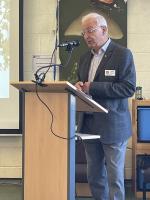
The final of the Lincolnshire Community Environmental Award took place at Whisby Nature Reserve on Saturday September 27th.
more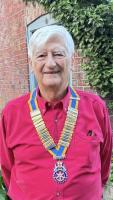
The Handover from the 'Four Season's President's to President Simon Kalson took place once again with the generous offer at the home of Paul & Gill Smith.
more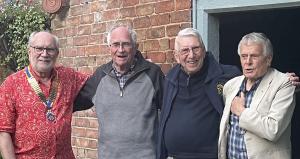
This year we have not one but four President's - Starting with Summer - Paul Smith, followed by Autumn - Bob Fletcher, then Winter - Tony Breeson and finally, Spring Rob Wilkinson - i.e. 'The Four Seasons'
more_1.jpg)
Lindum RC & Grantham Kesteven RC are supporting the Rotary Club of Meru who are running a feeding programme for the children living on the streets of Meru. These are some of their stories - with thanks to Joy Mwenda of the Rotaract Club of Mt. Kenya
more
We have received this update from Peter Gitonga in Kenya on the Kalithera workshop supported by our friends at Meru Rotary Club
more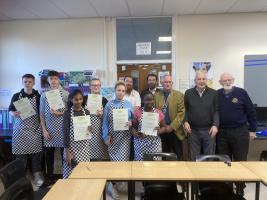
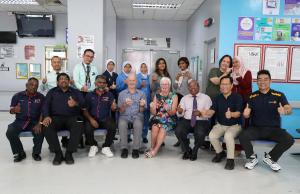
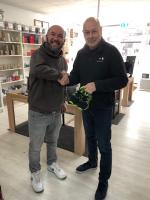
.png)
